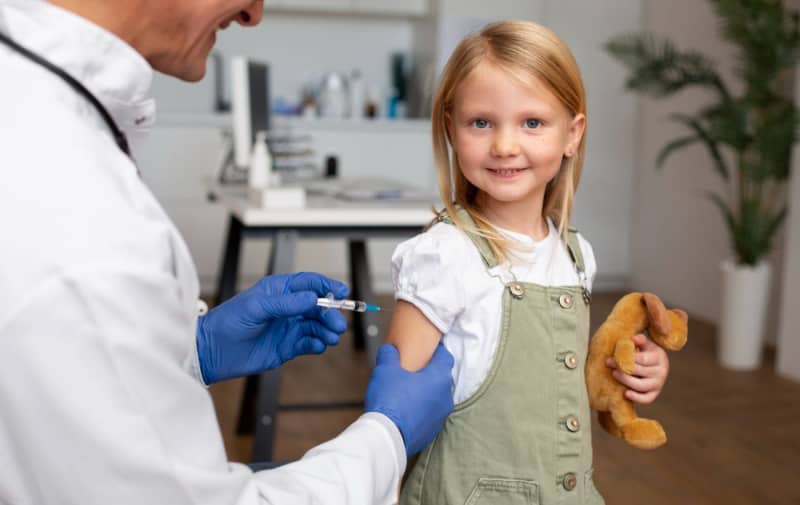
POST-VACCINATION RESPONSE: DEBUNKING MYTHS ABOUT ALLERGIES AND RECOGNIZING REAL SYMPTOMS
Possible reactions after vaccination often cause anxiety and fear of vaccination. At the same time, some normal signs after a vaccine are mistakenly considered dangerous.
RBC-Ukraine tells about what reactions to vaccination are normal and what symptoms should be treated by a doctor.
Sources used: Berezhy sebe website, Ministry of Health of Ukraine, Medialt, Kyiv - the official portal.
Why does vaccine reaction occur?
Postvaccination reactions, which can be divided into local and general, can occur a few hours after vaccination and last one to two days. This is due to the presence of adjuvants in vaccines - chemical compounds that are needed to stabilize the antigens in the vaccine and to ensure an optimal immune response.
Thanks to these compounds, the effectiveness of vaccination increases, and the body reacts more to antigens, producing antibodies. However, the absence of any reactions does not mean that the vaccine is ineffective, as the body's response is individual.
Normal reaction to vaccine
According to the explanations of the Ministry of Health and pediatrician Tetiana Tulchak, the following common post-vaccination reactions are safe:
・generalized fever
・redness, swelling, or lumps at the injection site
・fever or pain at the injection site.
Usually, such reactions go away on their own or significantly decrease on the third day after vaccination and do not require intervention, such as the use of antipyretic or anti-allergic drugs.
Dangerous reaction to vaccine
According to the recommendations of the Ministry of Health, you should consult a doctor if the following symptoms are observed:
・the redness has increased in size (more than 5 cm)
・redness began after two days after the vaccination
・the intensity of redness increases three days after the vaccination
・pain at the injection site has increased three days after vaccination
・fever lasts more than three days
・fever has increased two days after the vaccination.
In addition, if the child feels discomfort even at a lower temperature of 38.5, it is worth consulting a doctor for the correct dosage of painkillers.
Other dangerous reactions to vaccination, such as Quincke's edema and anaphylactic shock, occur quite quickly (from several seconds to several hours) if there is an allergy to a certain component of the vaccine.
Quincke's edema is characterized by severe swelling of the cheeks, lips, eyelids, and palate or tongue and throat. Anaphylactic shock - a severe allergic reaction - is accompanied by loss of consciousness and a drop in blood pressure within seconds or minutes after exposure to the allergen.
Severe allergic reactions are extremely rare (illustration: Freepik)
However, the risk of anaphylactic shock or Quincke's edema is extremely low - about 1.3 in a million. In addition, to find out the risk of this condition, the reaction to previous vaccinations and the child's allergies to medicines or chemicals are analyzed.
What not to do after vaccination
In the case of safe reactions and no discomfort, there is no need to take anti-allergic or painkillers, as they can have negative side effects in addition to being useless.
However, in the case of using medications to relieve discomfort, it is never recommended to take acetylsalicylic acid (aspirin) or painkillers.
You should not apply ointments, compresses, iodine mesh, or cabbage leaves, aloe, etc. to the injection site. This can lead to increased redness, overheating, burns, or create conditions for infection of the area.
But despite the widespread myth that the vaccine site should not be wet, the Ministry of Health does not prohibit taking a shower or bath, emphasizing that the most important thing is not to rub the injection site in any way to avoid irritating the skin.
Walking in the fresh air is also not prohibited - according to the Ministry of Health, it can reduce stress and anxiety after vaccination.
2024-05-01T03:14:23Z dg43tfdfdgfd